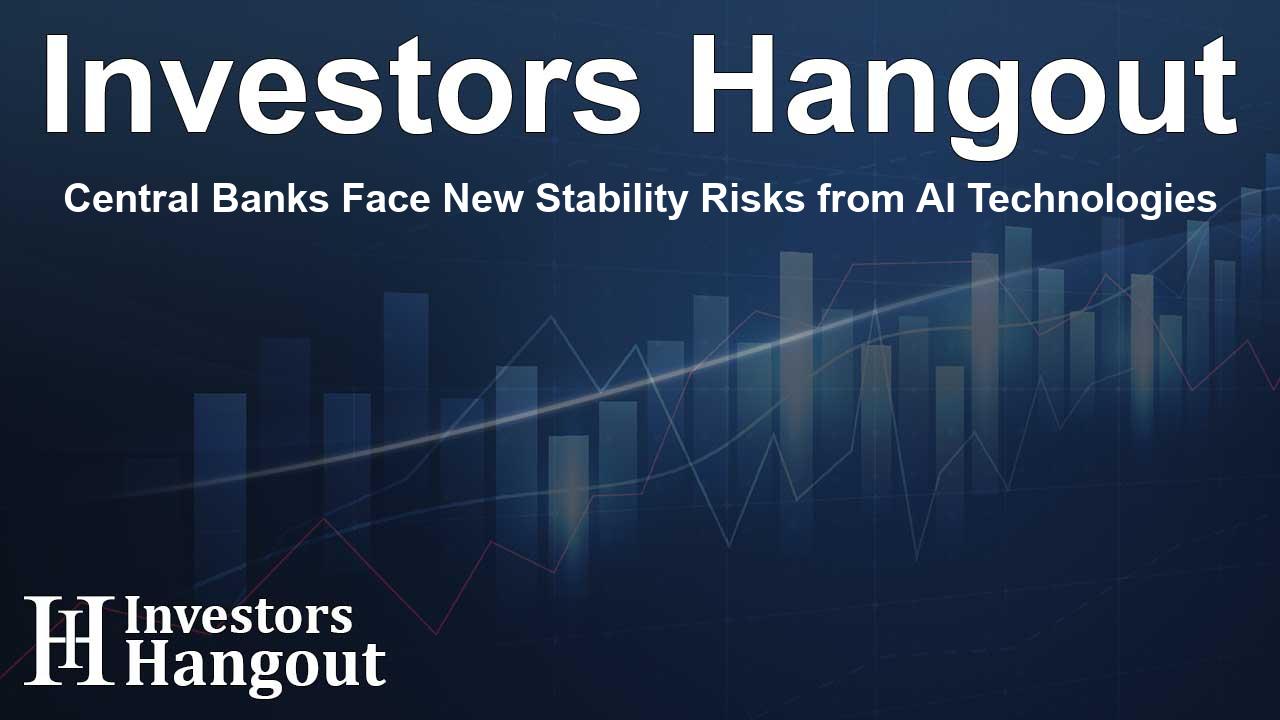Central Banks Face New Stability Risks from AI Technologies

Central Banks Must Adapt to Evolving Technological Risks
In recent discussions, Bank of Japan Governor Kazuo Ueda has highlighted significant concerns regarding the intersection of artificial intelligence (AI) and financial stability. As central banks navigate the complexities of a rapidly changing financial landscape, Ueda's insights serve as a crucial reminder of the challenges posed by technological advancements.
The Impact of AI on Financial Systems
Ueda pointed out that advancing technologies, like AI, can introduce new vulnerabilities into the financial system. The expansion of online banking and the ubiquitous nature of social media have amplified the speed at which negative sentiments regarding a bank's creditworthiness can spread, potentially leading to swift deposit withdrawals.
Challenges Presented by Generative AI
Additionally, the emergence of generative AI raises unique issues, particularly in areas related to data protection. Ueda emphasized that as financial services grow increasingly diverse and intricate, understanding the flow of risks becomes more challenging. He insisted that current regulations may not adequately address novel financial services that are evolving in tandem with technology.
The Need for Operational Resilience
In his address at the Paris Europlace Financial Forum, Ueda stressed the importance of operational resilience. He urged financial institutions to enhance their cybersecurity strategies and manage third-party risks effectively. This resilience is key to safeguarding against potential disruptions in an expanding digital landscape.
Monitoring and Governance
Ueda also articulated the necessity for central banks and regulatory authorities to keep a vigilant eye on developing financial intermediaries. Establishing robust governance and management frameworks is essential for mitigating new risks that challenge the stability of financial systems.
Adapting Regulatory Frameworks
The call for a regulatory and supervisory framework that evolves alongside technological innovations is paramount. Ueda believes that adapting to these advancements is essential for maintaining stability and ensuring the ongoing health of the financial ecosystem.
Frequently Asked Questions
What did Bank of Japan Governor Kazuo Ueda highlight about AI?
Ueda warned that AI could introduce new risks to financial stability, necessitating a focus on governance and risk management.
How can AI affect deposit withdrawals?
As concerns over a bank's credit status can spread rapidly through online platforms, it can lead to a rush of withdrawals from customers.
What challenges does generative AI pose?
Generative AI raises challenges primarily around data protection and the potential for unforeseen vulnerabilities in financial systems.
What is operational resilience?
Operational resilience encompasses robust strategies for managing cybersecurity threats and risks from third-party service providers.
Why is a new regulatory framework necessary?
A regulatory framework that adapts to technological change is critical in addressing the novel challenges posed by advancements in AI and financial technology.
About Investors Hangout
Investors Hangout is a leading online stock forum for financial discussion and learning, offering a wide range of free tools and resources. It draws in traders of all levels, who exchange market knowledge, investigate trading tactics, and keep an eye on industry developments in real time. Featuring financial articles, stock message boards, quotes, charts, company profiles, and live news updates. Through cooperative learning and a wealth of informational resources, it helps users from novices creating their first portfolios to experts honing their techniques. Join Investors Hangout today: https://investorshangout.com/
Disclaimer: The content of this article is solely for general informational purposes only; it does not represent legal, financial, or investment advice. Investors Hangout does not offer financial advice; the author is not a licensed financial advisor. Consult a qualified advisor before making any financial or investment decisions based on this article. The author's interpretation of publicly available data shapes the opinions presented here; as a result, they should not be taken as advice to purchase, sell, or hold any securities mentioned or any other investments. The author does not guarantee the accuracy, completeness, or timeliness of any material, providing it "as is." Information and market conditions may change; past performance is not indicative of future outcomes. If any of the material offered here is inaccurate, please contact us for corrections.